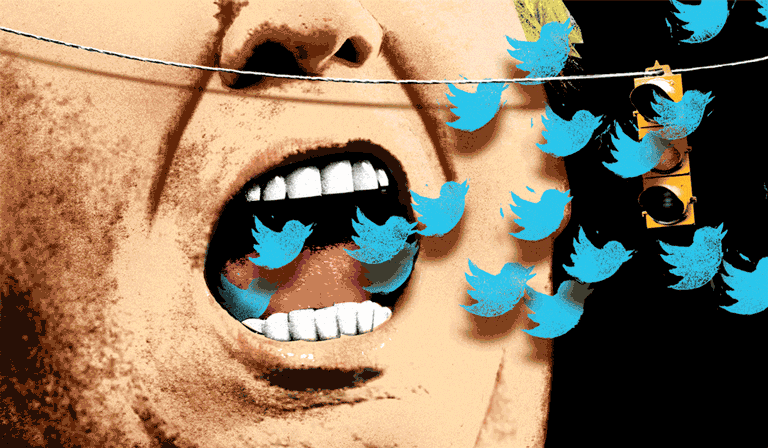If Twitter wanted to, it would be well within its rights to suspend Donald J. Trump’s account.
After the president-elect used Twitter last week to criticize Chuck Jones, an Indiana union leader who represents workers at the Carrier company, Mr. Jones reported receiving a series of threatening phone calls from Mr. Trump’s supporters. Similarly, last year, Mr. Trump used Twitter to attack a college student who asked him a critical question at a rally; The Washington Post reported that the woman has been barraged by obscene and deranged threats ever since.
As a corporation, Twitter is under no First Amendment obligation to let Mr. Trump use the service. It gets to make its own set of speech rules within its own walls, and among those rules is a prohibition on using the service to incite harassment. Earlier this year, the company suspended several Trump supporters who appeared to run afoul of those rules. Twitter has said that its policies apply to every user.
And yet Twitter is in no position, now, to suspend @realDonaldTrump.
If you look closely at Mr. Trump’s Twitter messages, he has appeared to tack just inside the lines of the service’s rules of conduct. More than that, free speech advocates argue that Twitter’s policies ought to give great deference to political figures. Suspending Mr. Trump’s account would be censorship. Though Twitter is legally free to censor whomever it wants, it also has a duty to recognize how its actions affect the larger world.
The repercussions could be vast. As online services like Twitter become the world’s primary place for political dialogue, the rules they set up for policing political speech will have a wide-ranging impact — they could be used to ban not just billionaire presidents-elect, but also activists and dissidents across the globe.
As several free speech advocates told me, it would be difficult for Twitter to enforce a rule that bans Mr. Trump’s tweets but does not also censor speech generally. Given that we are now entering an era dominated by right-wing nationalism, these rules could well come to backfire on the progressives urging Twitter to suspend Mr. Trump.
“The problem is not necessarily in what he’s saying but that he’s the president saying it,” said Jillian York, a free speech advocate at the Electronic Frontier Foundation. “If that sort of speech were censored for everyone, I would have a big problem with it,” she said. “It would be very much a violation of the spirit of freedom of expression to not allow me to critique a union leader or a journalist or a president.”
A spokeswoman for Mr. Trump did not return requests for comment.
Rather than yielding a ban, perhaps deliberations over Mr. Trump’s tweets may elicit something deeper from Twitter: Some soul-searching over the kind of platform it wants to be.
Twitter has never been very good about setting up and enforcing speech rules. For years, it let racism, misogyny and anti-Semitism run wild. People who follow Twitter’s abuse pronouncements say that over the last few months, the company has stepped up enforcement, but it has been criticized for doing so in a way that is opaque, and that does not shed much light on its overall abuse prevention strategy.
The Trump era gives Twitter a chance to do better. It can create a set of clear rules and an objective mechanism for enforcement. More than better policies, the company could also adopt a series of technical systems that would let users police harassment and other hateful content themselves.
New York Times
